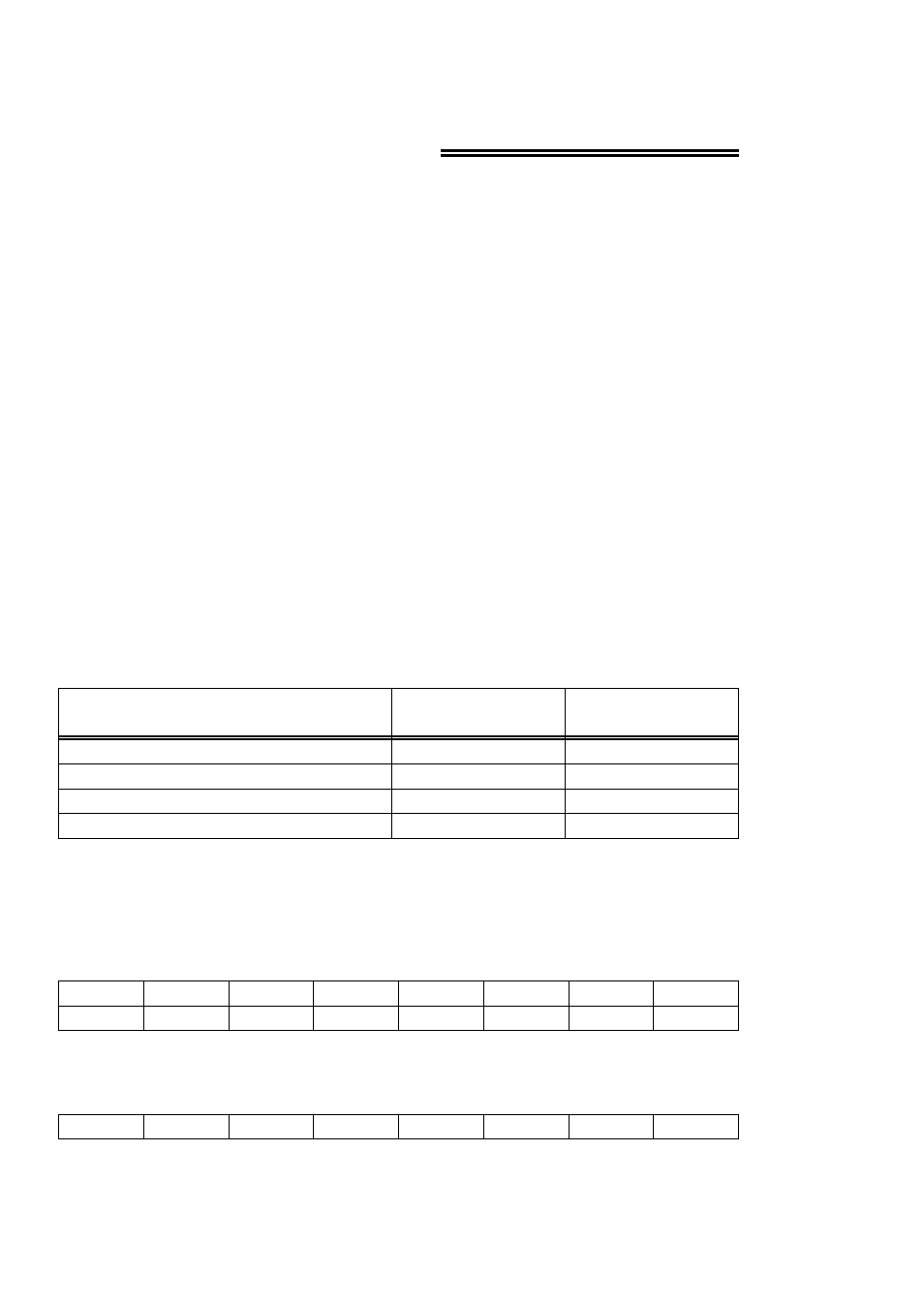5data registers – Measurement Computing CIO-DO48H User Manual
Page 11

5
DATA REGISTERS
Each CIO-DOxxH is composed of parallel output chips. Each address contains one
latch and one buffer controlling eight output pins. The ports are arranged in sets of
3, with an intervening NA (not used) address area. This scheme allows
compatibility with software written to control 82C55 based boards when the 82C55
is used as all outputs. On those boards every fourth address contains a control
register.
The first address, or BASE ADDRESS 0 , is determined by setting a bank of
switches on the board.
The data registers and their output function are listed on Table 5-1. Each register
has eight output bits. Thus:
CIO-DO48H uses registers 0 to 6 (six registers x 8 bits = 48; skip registers 3 &7)
CIO-DO96H uses registers 0 to 14 (12 registers x 8 bits = 96; skip four registers.)
CIO-DO192H uses registers 0 to 30 (24 registers x 8 bits = 192; skip eight
registers.)
To write a control data to an output register, the individual bits must be set to 0 or 1
then combined to form a Byte.
Table 5-1. Data Register Address Summary - All Board Versions
None (skip)
None
BASE +3, 7, 11, 15, 19, 23, 27, 31
Port C Output
None
BASE +2, 6, 10, 14, 18, 22, 26, 30
Port B Output
None
BASE +1, 5, 9, 13, 17, 21, 25, 29
Port A Output
None
BASE +0, 4, 8, 12, 16, 20, 24, 28
WRITE
FUNCTION
READ
ADDRESSES
The port identities (A, B, and C) repeat for each set of 24 digital output lines, so the
CIO-DO48 has two sets of ports, the DO96 has four and the DO192 has eight.
PORT A DATA
BASE ADDRESS + 0 (See Table 5-1 for remaining addresses.)
A0
A1
A2
A3
A4
A5
A6
A7
0
1
2
3
4
5
6
7
PORT B DATA
BASE ADDRESS + 1 (See Table 5-1 for remaining addresses.)
0
1
2
3
4
5
6
7
7
